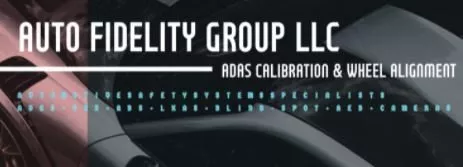The A,B,C's of Automechanics - - - - - I don't agree with the labor guide skill levels. I've come up with my own definitions.
-
Available Subscriptions
-
Have you checked out Joe's Latest Blog?
-
By Joe Marconi in Joe's Blog0 commentsIt always amazes me when I hear about a technician who quits one repair shop to go work at another shop for less money. I know you have heard of this too, and you’ve probably asked yourself, “Can this be true? And Why?” The answer rests within the culture of the company. More specifically, the boss, manager, or a toxic work environment literally pushed the technician out the door.
While money and benefits tend to attract people to a company, it won’t keep them there. When a technician begins to look over the fence for greener grass, that is usually a sign that something is wrong within the workplace. It also means that his or her heart is probably already gone. If the issue is not resolved, no amount of money will keep that technician for the long term. The heart is always the first to leave. The last thing that leaves is the technician’s toolbox.
Shop owners: Focus more on employee retention than acquisition. This is not to say that you should not be constantly recruiting. You should. What it does means is that once you hire someone, your job isn’t over, that’s when it begins. Get to know your technicians. Build strong relationships. Have frequent one-on-ones. Engage in meaningful conversation. Find what truly motivates your technicians. You may be surprised that while money is a motivator, it’s usually not the prime motivator.
One last thing; the cost of technician turnover can be financially devastating. It also affects shop morale. Do all you can to create a workplace where technicians feel they are respected, recognized, and know that their work contributes to the overall success of the company. This will lead to improved morale and team spirit. Remember, when you see a technician’s toolbox rolling out of the bay on its way to another shop, the heart was most likely gone long before that.
-
-
Similar Topics
-
By MikesPlaceAuto
Hello from Montana. Longtime mechanic/technician, first-time shop owner. Reaching out to many sources for information and advice. Small shop in rural setting, specializing in electrical and electronics. Thanks for any good words. Mike
-
By carmcapriotto
So, you didn’t go to school for HR, and let’s be honest, hiring probably wasn’t what you dreamed about when you opened your shop. But here you are, needing to fill those bays and build a solid team.
In this episode of the Auto Repair Marketing Podcast, Kim Walker is joined by Lisa Coyle of Promotive to break down what it takes to hire in today’s world, and spoiler alert: it’s all about marketing.
From writing job posts that work to building a reputation techs want to work for, they cover everything you didn’t know you needed to know. You’ll discover why speed is your best friend, how your everyday shop culture is part of your recruiting strategy, and why treating candidates like customers is the game-changer most shop owners miss.
Whether you’re hiring right now or just trying to build your bench, this episode is packed with smart advice, straight talk, and some seriously valuable insight into what works (and what doesn’t) when it comes to marketing your way to a great hire.
Hit play, and get ready to turn hiring from a headache into a strength. 👊
Thank you to our friends at RepairPal for providing you with this episode. RepairPal’s Certified Network of shops is trusted by millions of customers each month. Learn more at
RepairPal.com/shops.
AppFueled makes marketing easy. It’s a CRM designed for auto repair shops with tools like segmentation, reminders, and even a call center. Don’t wait—get started today at appfueled.com
Lagniappe (Books, Links, Other Podcasts, etc)
Promotive
Show Notes with Timestamps
Introduction to the Podcast (00:00:01) The podcast is introduced as part of the aftermarket radio network. Guest Introduction (00:00:10) Kim welcomes Lisa Coil from Pro Motive and expresses excitement about the discussion. Personal Anecdote on Hiring (00:01:22) Kim shares her first impression of Lisa at an industry event and their delayed connection. Marketing and Hiring Discussion (00:02:22) Kim highlights the importance of marketing in attracting both customers and future team members. Childhood Reflections on Blue-Collar Work (00:03:31) Kim reflects on societal views of blue-collar jobs and their financial misconceptions. Recruitment Challenges in the Industry (00:04:33) Discussion on the shortage of skilled blue-collar workers and the need for effective marketing strategies. Understanding Headhunters vs. Recruiters (00:05:23) Lisa explains the difference between headhunters and recruiters in the hiring process. Recruitment Process Overview (00:06:45) Lisa describes the comprehensive services provided by headhunters, from job design to candidate negotiation. Common Hiring Problems for Shops (00:09:13) Lisa outlines key challenges shops face, emphasizing the importance of branding and speed in hiring. Importance of Speed in Hiring (00:09:41) Lisa stresses the need for quick responses to applicants to secure top talent. Marketing's Role in Job Descriptions (00:12:10) Discussion on how marketing strategies influence job titles and descriptions to attract candidates. Optimizing Job Listings for Mobile (00:13:04) Lisa advises shop owners to check how their listings appear on mobile devices for better visibility. Balancing Job Specificity and Attractiveness (00:15:28) Lisa talks about the need to balance specificity in job titles without deterring potential applicants. Job Posting Strategies (00:18:28) Discussion on effective places for shops to post job openings. Candidate Treatment (00:18:39) Advice on treating job candidates like customers for better recruitment. Data Capture Importance (00:18:47) Emphasis on capturing candidate data for future recruitment needs. Using Job Boards (00:19:55) Recommendations on utilizing various job boards for recruitment. Applicant Tracking Systems (00:20:51) Benefits of using applicant tracking systems for managing job applications. Building a Candidate Database (00:21:53) The importance of maintaining a database of potential candidates over time. Social Media for Recruitment (00:22:46) Using social media ads for recruitment and the challenges involved. Referral Programs (00:23:43) Encouraging employee referrals as a strategy for finding candidates. Team Referral Incentives (00:25:27) Impact of financial incentives on employee referrals for job candidates. Maintaining Candidate Connections (00:25:50) Importance of staying in touch with candidates for future opportunities. LinkedIn for Hiring (00:27:15) Discussion on the effectiveness of LinkedIn for hiring technicians. Marketing's Impact on Hiring (00:28:01) How a shop's marketing affects their ability to attract good candidates. Consumer Reviews Influence (00:28:56) The role of online reviews in shaping potential candidates' perceptions. Showcasing Company Culture (00:30:27) The significance of showcasing company culture to attract talent. Careers Page Importance (00:32:55) Discussion on the essential elements of a careers page for attracting talent. Website for Customers and Employees (00:33:44) Lisa shares insights on designing websites for both consumers and potential employees. Showcasing Team Members (00:36:04) Importance of displaying employees on the website to attract future talent. Training and Retention Strategies (00:37:12) Discussion on the significance of training and retaining employees after hiring. Engagement During Transition (00:38:20) Keeping candidates engaged between signing the offer and starting their new role. Making First Days Special (00:40:10) Ideas for creating memorable first-day experiences for new hires. Responding to Negative Reviews (00:43:16) Advice on handling negative feedback and its impact on employer branding. Reputation Management (00:45:24) The importance of maintaining a positive reputation as an employer. Finding Pro Motive (00:48:28) Information on how to connect with Pro Motive for hiring assistance. Closing Remarks (00:49:14) Wrap-up of the episode and encouragement to listen to future shows.
How To Get In Touch
Join The Auto Repair Marketing Mastermind Group on Facebook
Meet The Pros
Follow SMP on Facebook
Follow SMP on Instagram
Get The Ultimate Guide to Auto Repair Shop Marketing Book
Email Us Podcast Questions or Topics
Click to go to the Podcast on Remarkable Results Radio
-
By nptrb
Premium Member Content
This content is hidden to guests, one of the benefits of a paid membership. Please login or register to view this content.
-
By Changing The Industry
Episode 215 - Upending Automotive Credentials With The AVTECC Initiative With David Macholz
-
-
By stevefry
I have a client looking to sell their Auto Body Shop in Monteagle TN called Lakeside Collision. He is asking $1,500,000 and the property did a little over $1,200,000 last year. Profitable business with lots of equipment and inventory, newer paint booth and includes 2 lots and 2 buildings with 8 bay doors.
Also have another client looking for an Auto Body business to purchase in Davidson County (Nashville) TN. Looking for a shop with the business and the real estate.
-
-
-
Our Sponsors


















Recommended Posts